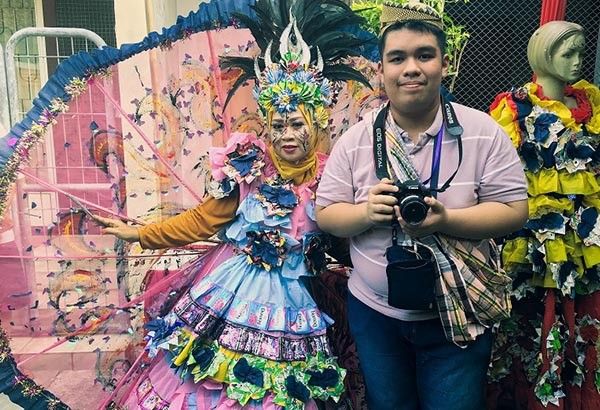Mindanao student represents Philippines in UNICEF summit

MANILA, Philippines — An Ateneo de Zamboanga student represented the Filipino youth in an international United Nations Children's Fund (UNICEF) summit held in Surabaya, Indonesia recently.
The 12th grade senior high school student, Joshua Rommel Vargas, attended the “Grow Up Urban” summit with Zamboanga City Mayor Maria Isabelle Climaco-Salazar, City Social Welfare and Development official Ma. Socorro Rojas, UNICEF Philippines representative Lotta Sylwander and UNICEF Philippines Social Policy chief Anjanette Saguisag.
In an essay titled “To Grow Up Urban,” the youth leader wrote what he learned and realized that investing in children is an investment for the society and for the future. He compared his hometown Zamboanga to Surabaya as children in the latter have more liberty and mobility.
“Here, children play outside, if they weren’t in the schoolhouse learning the Javanese alphabet or in the library playing with toys. Not once did I see the adults hold the children back. This was a sort of childhood that I didn’t think could exist in an urban environment, and certainly not the childhood I had,” he wrote.
“I grew up rather sheltered, though I wouldn’t blame it on my family. There was a crisis with security and safety at the time, and the military would constantly be on red alert. I was told never to stray far from mama, all the more walk by myself to school,” he added.
As a youth representative, Joshua said his role as the voice of the youth is timely given that the summit took place days before the revised Sanguniang Kabataan elections.
“It made me learn so much about how even the smallest decisions by our governments and the smallest changes in our communities ripple to affect our quality of life.”
Joshua believes that the SK is important and Filipinos should be keeping track of it. He also stressed that leadership programs, student councils and a mock congress are important.
“The process of progress is not a careful plan, but a plethora of little forces creating a big push together, and to not just benefit from but also to contribute to it is an opportunity we should provide for every child,” he stressed.
He learned from Economic and Policy Research Institute’s Michael Samson the importance of investing in cognitive capital as he stressed “how essential it is to invest heavily into the early stage of a child’s life, as nutrition and healthcare during the first 0-2 years would have lasting effects on physical and mental development.”
Surabaya Mayor Tri Rismaharini also proudly showed the achievements of her government and the Surabaya people, including the Kampung improvement project as well as other 11 child-friendly cities that included Vargas’ own Zamboanga.
“Mayor Beng (Climaco-Salazar ) had unique challenges when the city went under siege. Nevertheless, she persisted with her goal of making the city more child-friendly. She delivered State of the Children addresses, created programs for youth participation and livelihood, and invested in public spaces like the playground at Barangay Sta. Maria which I pass by every day going to school. The mayors and city leaders did agree that, despite their accomplishments, there is still much more to be done with regards to making more inclusive and welcoming societies for children, as well as assuring their safety and access to social services and welfare.”
Joshua said he loves all the presentations, but his favorite was the one with Patrin Watanatada, Knowledge for Policy Director from the Bernard Van Leer Foundation.
“She discussed the importance for leaders and urban planners not just to plan for children’s needs, but also to plan for children. She pushed the concept of URBAN95 and handed out masks that had a measuring tape 95 centimeters long towards the floor. This was to help us view the world from the eyes of a child, and to remind us that even the adults in charge of governance were children, too,” he said.
“She stressed that, in making cities inclusive for children, we should not only think in terms of hard concrete policy but also plan with love and imagine how living in our cities would be like for children. She also noted that it is important to ‘ask the children;’ that is, encourage their participation in society and actively involve them in planning,” he added.
The senior high student thinks a “truly inclusive society is not just one that has been planned to meet the needs of different demographics but also makes every single citizen truly part of the process of progress. This means providing avenues for youth participation, the central topic of the five-minute commentary I gave at the meeting.”
Joshua closed his essay by saying that “to grow up urban shouldn’t be a paradox, where everything is so in reach and yet so far away, and where there is a lack of equity in terms of access to the things we need to develop our full potentials. To grow up urban should be an advantage. I yearn for the day where every child can live an urban life like the ones I saw at that Kampung.”



















